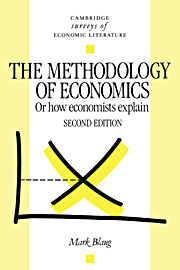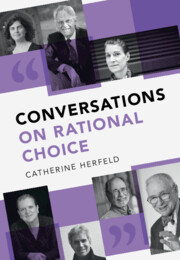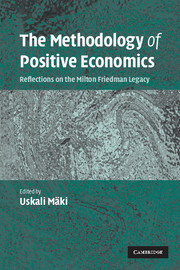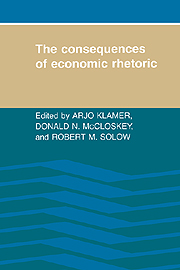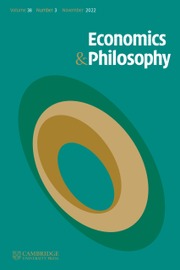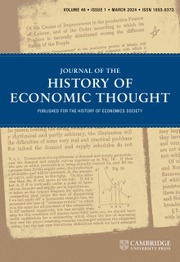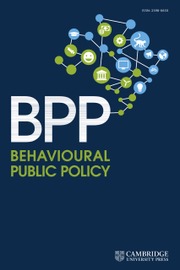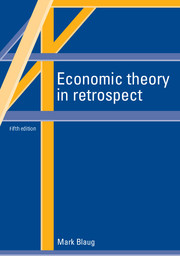The Methodology of Economics
This book examines the nature of economic explanation. The author introduces current thinking in the philosophy of science and reviews the literature on methodology. He looks at the status of welfare economics, and also provides a series of case studies of leading economic controversies, showing how they may be illuminated by paying attention to questions of methodology. A final chapter draws the strands together and gives the author's view of what is wrong with modern economics. This book is a revised and updated edition of a classic work on the methodology of economics.
- Second edition of enormously successful book in economic methodology, a classic in the field: c. 16,000 sold in paperback
- Revised and updated version of the original developing Blaug's ideas in the light of subsequent work - one completely new chapter
- Will be as widely adopted on philosophy of economics and economic methodology courses as its predecessor
Reviews & endorsements
"This is a well-written and stimulating book...The summaries of the relevant literature are very good; its critical comments are balanced and fair. Many economists will find it a useful book". Journal of Economic Literature
"...If one is looking for a single book that might safely be put into the hands of economics students to inform them about relevant developments in the philosophy of science, about the tradition of self-conscious appraisal in their own discipline, and about the empirical substance of what they will almost everywhere be taught as mainstream economics, then this is it." Neil De Marchi, The Economic Journal
Product details
July 1992Paperback
9780521436786
316 pages
227 × 151 × 21 mm
0.431kg
Available
Table of Contents
- Preface
- Part I. What You Always Wanted to Know about the Philosophy of Science but Were Afraid to Ask:
- 1. From the received view to the views of Popper
- 2. From Popper to the new heterodoxy
- Part II. The History of Economic Methodology:
- 3. The verifications, a largely nineteenth-century story
- 4. The falsifications, a wholly twentieth-century story
- 5. The distinction between positive and normative economics
- Part III. A Methodological Appraisal of the Neoclassical Research Program:
- 6. The theory of consumer behaviour
- 7. The theory of fun
- 8. General equilibrium theory
- 9. Marginal productive theory
- 10. Switching, reswitching, and all that
- 11. The Heckscher-Ohlin theory of international trade
- 12. Keynesians versus monetarists
- 13. Human capital theory
- 14. The new economics of the family
- 15. The rationality postulate
- Part IV. What Have We Now Learned about Economics?:
- 16. Conclusions
- Glossary
- Suggestions for further reading
- Bibliography
- Name index
- Subject index.

